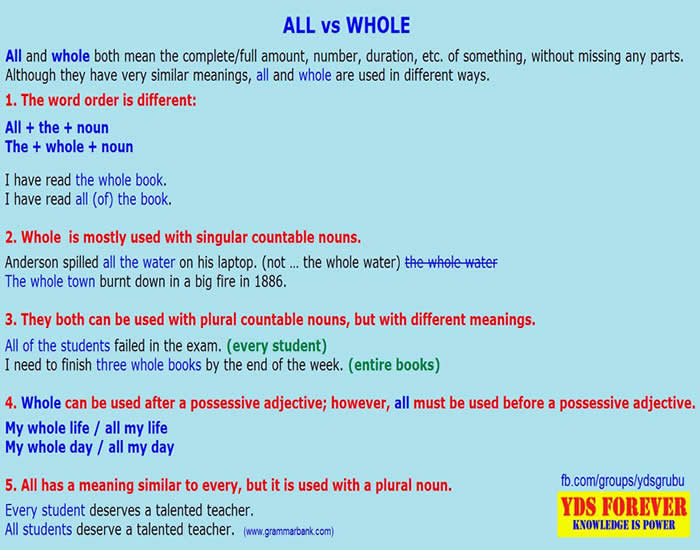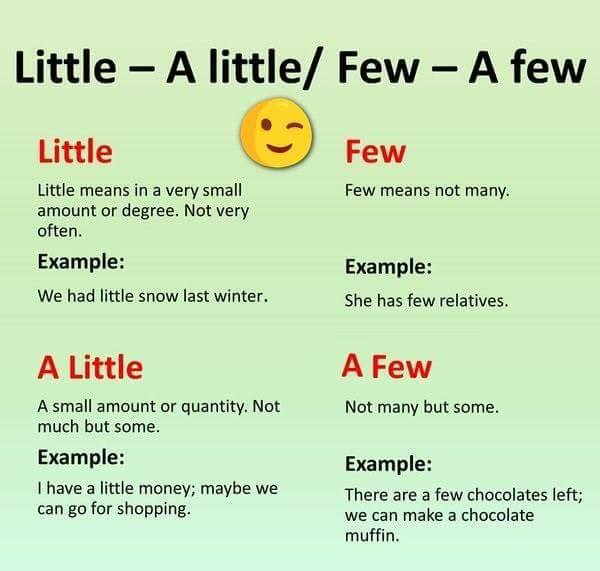Differences and Using All and Whole
All and whole both mean the complete/full amount, number, duration, etc. of something, without missing any parts.
Although they have very similar meanings, all and whole are used in different ways.
1. The word order is different:
All + the + noun
The + whole + noun
I have read the whole book.
I have read all (of) the book.
2. Whole is mostly used with singular countable nouns;
Anderson spilled all the water on his laptop. (not … the whole water) the whole water.
The whole town burnt down in a big fire in 1886.
3. They both can be used with plural countable nouns, but with different meanings.
All of the students failed in the exam. (every student)
I need to finish three whole books by the end of the week. (entire books)
4. Whole can be used after a possessive adjective; however, all must be used before a possessive adjective.
My whole life / all my life
My whole day / all my day
5. All has a meaning similar to every, but it is used with a plural noun.
Every student deserves a talented teacher.
All students deserve a talented teacher.
Source: (www.grammarbank.com)
fb.com/groups/ydsgrubu




Like this my fellow friends